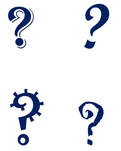What is Inquiry?

Inquiry-based learning is a constructivist approach, in which students have ownership of their learning. It starts with exploration and questioning and leads to investigation into a worthy question, issue, problem or idea.
It involves asking questions, gathering and analysing information, generating solutions, making decisions, justifying conclusions and taking action.
Based on definitions from Sharon Friesen and the Galileo Educational Network
It involves asking questions, gathering and analysing information, generating solutions, making decisions, justifying conclusions and taking action.
Based on definitions from Sharon Friesen and the Galileo Educational Network
|
Inquiry Disposition
Inquiry is a disposition, not a process. One of our jobs as a teacher is to nurture and develop that disposition. Young children are naturally curious, they want to make sense of the world around them, they continually ask questions. We need to foster this, to make asking questions something we value. We need to develop students' abilities to ask questions, to look beyond the surface, to challenge their own beliefs and those of others. |
Inquiry as a disposition from EDtalks on Vimeo. |
 Opoutere School - planting native trees after an inquiry into trees that would attract native birds.
Opoutere School - planting native trees after an inquiry into trees that would attract native birds.
Elements of Inquiry
- Student ownership and agency
- Clear purpose
- Authentic contexts and meaningful learning
- Investigation into a worthy question, issue, problem or idea.
- Students construct meaning building on their prior knowledge.
- Scaffolding to support learning
- Teacher as guide or facilitator
- Knowledge creation
- Action (linked to the purpose) as a result of the inquiry
Teacher's Role
The teacher's role in inquiry-based learning is flexible and responsive. The aim should be to develop learner agency with the teacher scaffolding the learning where needed. It is very easy to fall into the trap of being the problem-solver and knowledge-giver, but in the long-term this will not develop independent learners. As the teacher we need to make decisions about when to impart knowledge or give an answer or solution and when it will be more beneficial to support the learner in finding answers or solutions themselves. This is discussed further on the Inquiry Levels page.
We need to be very clear about the purpose of the inquiry. Making sure we understand the purpose is the very first thing we need to do before we begin planning for inquiry.
I discuss these concepts further in my blog posts: Ask, Don't Tell, Compelling Reason, Developing an Inquiry Disposition in the First Month, Olympics, Why, Why, Why? and Play, Passion & Purpose.
The teacher's role in inquiry-based learning is flexible and responsive. The aim should be to develop learner agency with the teacher scaffolding the learning where needed. It is very easy to fall into the trap of being the problem-solver and knowledge-giver, but in the long-term this will not develop independent learners. As the teacher we need to make decisions about when to impart knowledge or give an answer or solution and when it will be more beneficial to support the learner in finding answers or solutions themselves. This is discussed further on the Inquiry Levels page.
We need to be very clear about the purpose of the inquiry. Making sure we understand the purpose is the very first thing we need to do before we begin planning for inquiry.
I discuss these concepts further in my blog posts: Ask, Don't Tell, Compelling Reason, Developing an Inquiry Disposition in the First Month, Olympics, Why, Why, Why? and Play, Passion & Purpose.
2021

